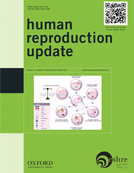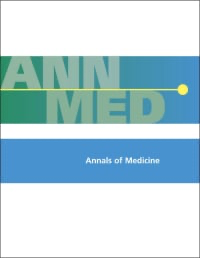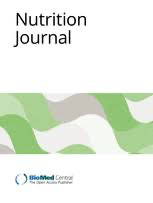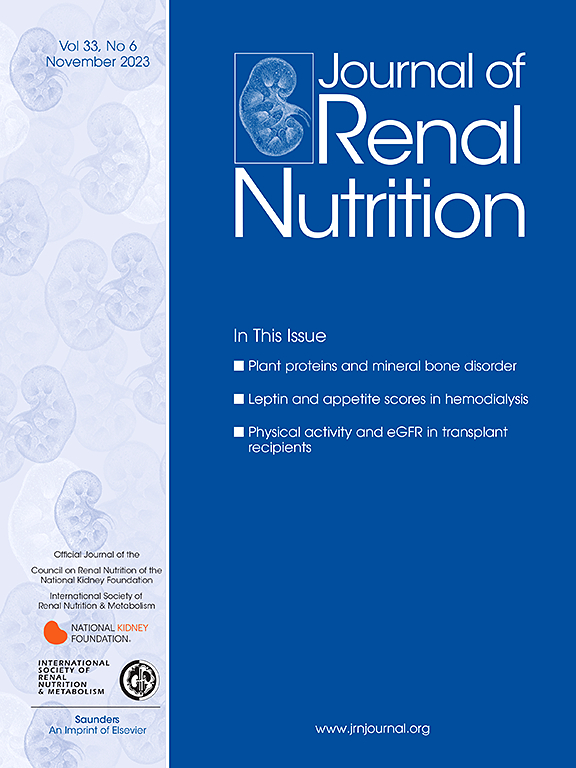Dairy
How to submit an article:
- Registered users can submit any published journal article that has a unique DOI (Digital Object Identifier) name or link to Research Hub.
- For example, you can paste the full DOI link:
https://doi.org/10.1109/5.771073or just the DOI name:10.1109/5.771073into the field above and click submit. - The person who is first to submit a valid article to Research Hub will forever be credited for it, and every article submission earns you +6 Research Points.
Related Topics
Published research studies are articles that present the findings of original research that has undergone a peer-review process and has been made publicly available in scholarly journals, books or other media.

Assessing the influence of preconception diet on female fertility: a systematic scoping review of observational studies
2023 Jul 19 Human Reproduction Update Alesi S, Habibi N, Silva TR, Cheung N, Torkel S, Tay CT, et al.
Review Article Female Fertility Saturated Fats Trans Fats Mediterranean DietThe Mediterranean diet and reduced intake of trans fatty acids, saturated fatty acids, and discretionary foods like fast food and sugar-sweetened beverages may improve fertility rates.

The association between breast cancer and consumption of dairy products: a systematic review
2023 Apr 20 Annals of Medicine Arafat HM, Omar J, Shafii N, Naser IA, Al Laham NA, Muhamad R, et al.
Systematic Review Breast Cancer DairyConsuming dairy products might reduce the risk of developing breast cancer.

Differences in the microRNAs Levels of Raw Milk from Dairy Cattle Raised under Extensive or Intensive Production Systems
2022 Nov 27 Veterinary Sciences Abou el qassim L, Alonso J, Zhao K, Le Guillou S, Diez J, Vicente F, et al.
Experimental Study Cohort Study Raw MilkThe type of dairy production system can influence the overall and specific levels of microRNAs, potentially affecting the functional potential of dairy products.

Food groups and nutrients consumption and risk of endometriosis: a systematic review and meta-analysis of observational studies
2022 Sep 22 Nutrition Journal Arab A, Karimi E, Vingrys K, Kelishadi MR, Mehrabani S, Askari G
Systematic Review Meta-Analysis Dairy Endometriosis Red MeatHigher consumption of dairy foods relates to a decreased risk of endometriosis, while increased intake of red meat and certain fats elevates the risk.

Plant-Based Milk Alternatives and Risk Factors for Kidney Stones and Chronic Kidney Disease
2022 May Journal of Renal Nutrition Borin JF, Knight J, Holmes RP, Joshi S, Goldfarb DS, Loeb S
The study found that oat, macadamia, rice, and soy milk compare favorably with dairy milk in terms of kidney stone risk factors, while almond and cashew milk have more potential stone risk factors. Coconut milk may be a favorable substitute for patients with chronic kidney disease based on low potassium, sodium, and oxalate.
Experimental Study Coconut Milk Kidney Stone Chronic Kidney Disease Plant Milk Cashew Milk Nuts Almond MilkResearch insights are moderated by the Research Hub team and offer an at-a-glance overview of interesting research findings.

2023 Human Reproduction Update
The Mediterranean diet and reduced intake of trans fatty acids, saturated fatty acids, and discretionary foods like fast food and sugar-sweetened beverages may improve fertility rates.
Review Article Female Fertility Mediterranean Diet Saturated Fats Trans Fats
Assessing the influence of preconception diet on female fertility: a systematic scoping review of observational studies
Alesi S, Habibi N, Silva TR, Cheung N, Torkel S, Tay CT, et al.

2023 Annals of Medicine
Consuming dairy products might reduce the risk of developing breast cancer.
Systematic Review Breast Cancer
The association between breast cancer and consumption of dairy products: a systematic review
Arafat HM, Omar J, Shafii N, Naser IA, Al Laham NA, Muhamad R, et al.

2022 Veterinary Sciences
The type of dairy production system can influence the overall and specific levels of microRNAs, potentially affecting the functional potential of dairy products.
Experimental Study Raw Milk
Differences in the microRNAs Levels of Raw Milk from Dairy Cattle Raised under Extensive or Intensive Production Systems
Abou el qassim L, Alonso J, Zhao K, Le Guillou S, Diez J, Vicente F, et al.

2022 Nutrition Journal
Higher consumption of dairy foods relates to a decreased risk of endometriosis, while increased intake of red meat and certain fats elevates the risk.
Systematic Review Endometriosis Red Meat
Food groups and nutrients consumption and risk of endometriosis: a systematic review and meta-analysis of observational studies
Arab A, Karimi E, Vingrys K, Kelishadi MR, Mehrabani S, Askari G

2020 Nutrients
Unpasteurised milk and dairy products intake could potentially alter gut microbiome composition which may influence psychological functioning.
Experimental Study Gut Microbiota Lactobacillus Raw Milk
Recipe for a Healthy Gut: Intake of Unpasteurised Milk Is Associated with Increased Lactobacillus Abundance in the Human Gut Microbiome
Butler MI, Bastiaanssen TFS, Long-Smith C, Berding K, Morkl S, Cusack AM, et al.
Review Articles
Review articles summarise and critically evaluate the current state of research on a specific topic or field by synthesising multiple primary research studies.

Assessing the influence of preconception diet on female fertility: a systematic scoping review of observational studies
2023 Jul 19 Human Reproduction Update Alesi S, Habibi N, Silva TR, Cheung N, Torkel S, Tay CT, et al.
Review Article Female Fertility Saturated Fats Trans Fats Mediterranean DietThe Mediterranean diet and reduced intake of trans fatty acids, saturated fatty acids, and discretionary foods like fast food and sugar-sweetened beverages may improve fertility rates.

The association between breast cancer and consumption of dairy products: a systematic review
2023 Apr 20 Annals of Medicine Arafat HM, Omar J, Shafii N, Naser IA, Al Laham NA, Muhamad R, et al.
Systematic Review Breast Cancer DairyConsuming dairy products might reduce the risk of developing breast cancer.

Food groups and nutrients consumption and risk of endometriosis: a systematic review and meta-analysis of observational studies
2022 Sep 22 Nutrition Journal Arab A, Karimi E, Vingrys K, Kelishadi MR, Mehrabani S, Askari G
Systematic Review Meta-Analysis Dairy Endometriosis Red MeatHigher consumption of dairy foods relates to a decreased risk of endometriosis, while increased intake of red meat and certain fats elevates the risk.
Clinical Trials
Clinical trials are research studies that involve people and are conducted to evaluate the safety and efficacy of new treatments or interventions, such as drugs, medical devices, or behavioural therapies.
Study Protocols
Published study protocols are detailed plans that outline the objectives, methodology, statistical analyses, and organisation of a research study that have been made publicly available for others to review and use as a reference.
Presentation Slides

Review Article
The Mediterranean diet and reduced intake of trans fatty acids, saturated fatty acids, and discretionary foods like fast food and sugar-sweetened beverages may improve fertility rates.
Alesi S, Habibi N, Silva TR, Cheung N, Torkel S, Tay CT, Quinteros A, Winter H, Teede H, Mousa A, Grieger JA, Moran LJ

Systematic Review
Consuming dairy products might reduce the risk of developing breast cancer.
Arafat HM, Omar J, Shafii N, Naser IA, Al Laham NA, Muhamad R, Al-Astani TAD, Shaqaliah AJ, Shamallakh OM, Shamallakh KM, Abusalah MAH

Experimental Study
The type of dairy production system can influence the overall and specific levels of microRNAs, potentially affecting the functional potential of dairy products.
Abou el qassim L, Alonso J, Zhao K, Le Guillou S, Diez J, Vicente F, Fernández-Sanjurjo M, Iglesias-Gutiérrez E, Guan L, Royo LJ

Systematic Review
Higher consumption of dairy foods relates to a decreased risk of endometriosis, while increased intake of red meat and certain fats elevates the risk.
Arab A, Karimi E, Vingrys K, Kelishadi MR, Mehrabani S, Askari G

Experimental Study
Unpasteurised milk and dairy products intake could potentially alter gut microbiome composition which may influence psychological functioning.
Butler MI, Bastiaanssen TFS, Long-Smith C, Berding K, Morkl S, Cusack AM, Strain C, Busca K, Porteous-Allen P, Claesson MJ, Stanton C, Cryan JF, Allen D, Dinan TG

Clinical Study
Young adults using low-fat oily dressings and certain cooking oils are linked to higher metabolic risks without direct relation to their consumptions of low fat dairy, meat, or cooking fats.
Sun Y, Magnussen CG, Dwyer T, Oddy WH, Venn AJ, Smith KJ
Executive Summary
Write an executive summary in the form of a blog article on the topic of "Research into Chinese medicine treatment for Dairy" summarising the research below and using language that can be easily understood by patients and avoiding medical jargon using a professional and caring tone of voice.
Write an executive summary in the form of a blog article on the topic of "Researched Chinese medicine treatments for Dairy" summarising the research below in an objective and easy to understand way, and using language that can be easily understood by patients. Group the article into Chinese medicine treatments first, followed by nutrition and other treatments. Avoid using medical jargon and use a professional and caring tone of voice.
Write me a concise but easy to understand executive summary on the topic of "Chinese medicine treatments for Dairy" based on the following research that I will give you. Your summary should be 2 paragraphs long in Australian English spelling and include references to the studies.
A Review Article published in 2023 in the journal Human Reproduction Update found that The Mediterranean diet and reduced intake of trans fatty acids, saturated fatty acids, and discretionary foods like fast food and sugar-sweetened beverages may improve fertility rates. This title represents a systematic scoping review of four electronic databases, namely Medline and EMBASE via Ovid Processing, CAB Direct, and CINAHL via EBSCO. The researchers included observational works, consisting of prospective and retrospective cohort, cross-sectional, and case-control studies, up to September 27, 2021. The criteria for study inclusion were women of reproductive age in the preconception stage who were examined for the connection between preconception diet and fertility outcomes. From the total of 36 studies that were found eligible for review, the one diet that stood out with the most significant and consistent association with increased clinical pregnancy rates was the Mediterranean diet. Dietary factors such as reducing trans fatty acids, saturated fatty acids, and discretionary food intake, which includes fast food and sugar-rich drinks, were found to lead to an improvement in live birth, clinical pregnancy rates, and associated ART outcomes. However, this study also found that elements like seafood, dairy, and soy showed varying findings across a few studies. Despite the mixed results, it was noted that following some of these dietary regulations, notably Mediterranean diet, shows consistency with healthy eating guidelines, implying potential benefits in fertility.
A Systematic Review published in 2023 in the journal Annals of Medicine found that Consuming dairy products might reduce the risk of developing breast cancer. The researchers conducted a systematic literature review where they scrutinized various databases for studies published in English up to January 2022. They began with 82 articles, but only 18 met their pre-set inclusion criteria. The studies varied in type - nine were prospective, seven were retrospective, and two were cross-sectional. The results indicated an inverse relationship between dairy consumption and the risk of developing breast cancer. However, the effect of different types of dairy products and the exact dose-response relationships on breast cancer risk remains unclear. Nevertheless, this review provides a foundation for considering dairy products in preventive strategies to reduce breast cancer occurrence.
A Experimental Study published in 2022 in the journal Veterinary Sciences found that The type of dairy production system can influence the overall and specific levels of microRNAs, potentially affecting the functional potential of dairy products. The research initially observed levels of microRNAs present in fat and cellular components from tank milk collected from farms using both intensive and extensive dairy production models. They commenced by sequencing microRNAs from three different milk samples from each production method. These selected microRNAs, which showed notable variance in both the fat and cellular content between the two production systems, were then further validated by conducting quantitative PCR on tank milk samples procured from an additional twenty different commercial farms. The team discovered that the differences in the amounts of microRNAs were most significant in the fat portions of the milk. Here, they found that both the overall levels of microRNAs and the levels of specific types were considerably higher in milk from the intensive production system when compared to the extensive system. They also undertook a pathway analysis of the bovine mRNA targets for these specific microRNAs. While the precise reasons for these discrepancies in microRNA levels are yet to be determined, the research strongly indicated that the choice of production system could have a direct impact on both the microRNA content and the potential functionality of dairy and other agri-food products.
A Systematic Review published in 2022 in the journal Nutrition Journal found that Higher consumption of dairy foods relates to a decreased risk of endometriosis, while increased intake of red meat and certain fats elevates the risk. The study is a systematic review and meta-analysis of observational studies, evaluating the relationship between dietary intakes of specific food groups (dairy, fats, fruits, vegetables, legumes, and meat) and endometriosis risk. The databases PubMed, Scopus, and ISI Web of Science were systematically searched until September 2022 to collect data. To measure the effect size and corresponding confidence intervals, the inverse variance-weighted fixed-effect method was used. There were eight publications included in this study, ranging from a sample size of 156 to 116,607, comprising five cohorts and three case-control studies. The results indicated a link between the risk of endometriosis and dietary intake. A higher intake of total dairy products was associated with a decreased risk, but there was no such association found with either low or high-fat dairy, cheese or milk. Conversely, a higher consumption of red meat, trans fatty acids, and saturated fatty acids showed an association with an increased risk of endometriosis. The results highlight differing associations between dietary practices and endometriosis risk, hinting at the role of diet in the incidence and progression of the condition.
A Experimental Study published in 2020 in the journal Nutrients found that Unpasteurised milk and dairy products intake could potentially alter gut microbiome composition which may influence psychological functioning. In this observational study, the impact of dietary change involving unpasteurized dairy consumption on gut microbiota and psychological state was observed among participants of a 12-week residential cookery course on an organic farm. Twenty-four participants, who primarily consumed food from the farm including unpasteurised milk and dairy products, provided faecal samples at the beginning and end of the course. Concurrently, they completed self-report questionnaires touching on mood, anxiety, and sleep aspects and nutrient intake was monitored via a food frequency questionnaire. Gut microbiota analysis was carried out using 16S rRNA gene sequencing and measurement of faecal short chain fatty acids. Post-course, there was a significant growth in the relative abundance of a specific bacterial genus in the gut, associated with unpasteurised milk and dairy product intake. Furthermore, an increase in a particular faecal short chain fatty acid, valerate, was observed together with an elevation in the functional richness of the microbiome profile. The latter was determined by measuring the predicted neuroactive potential using a unique gut-brain module approach. Despite safety concerns, the consumption of unpasteurised milk and dairy products seemed to promote the growth of probiotic bacterial genus, known to be beneficial for various physical and mental health outcomes.
A Clinical Study published in 2018 in the journal Nutrients found that Young adults using low-fat oily dressings and certain cooking oils are linked to higher metabolic risks without direct relation to their consumptions of low fat dairy, meat, or cooking fats. The research engaged 2071 participants aged between 26 to 36 years old to report their dietary behaviors like how often they removed visible fat from meat, their intake of low-fat dairy products, and how frequently they used different cooking fats, from 2004 to 2006. The participants also had their blood pressure, weight, and height measured, while a fasting blood sample was taken to create a continuous metabolic syndrome (cMetSyn) score using sex-specific principal component analysis applied to normalized risk factors. This cMetSyn score is designed to depict higher risks with higher scores. The findings showed that the mean cMetSyn score had positive correlations with those participants who consumed low-fat oily dressings and used canola or sunflower oil for cooking. Interestingly, the researchers found no significant associations between the cMetSyn score and the behaviors of trimming fat from meat, cooking with olive oil or butter, or taking low-fat dairy products. This indicates that metabolic risk among young adults does not necessarily correlate with compliance to traditional fat-related dietary recommendations.
Moderation Tools
Topic
Sign In
Users not signed in are limited to viewing the 5 most recent items of content.